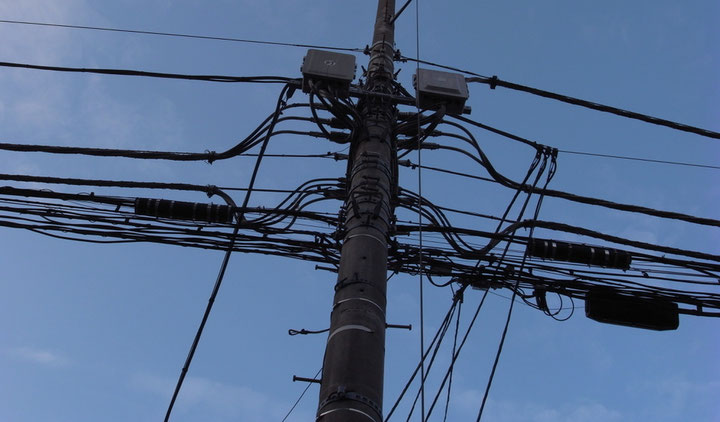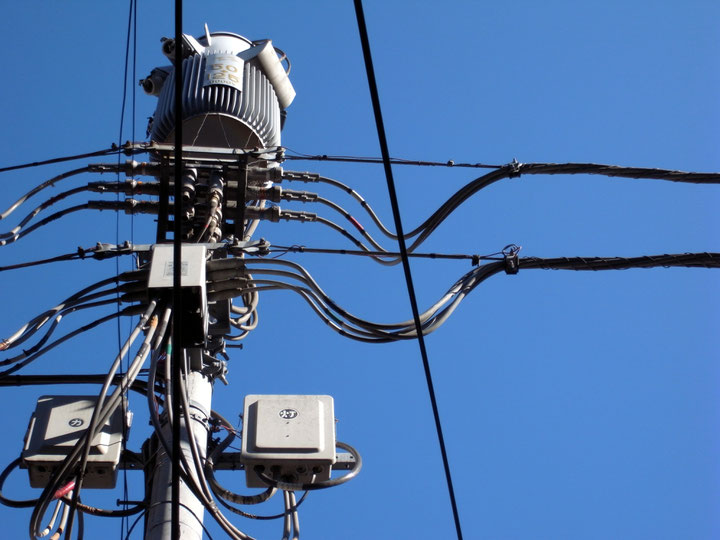Issue 1/2014 - Net section
Citizens Searching for a State
Edward Snowden and the non-economic dimension of the digital present
Total surveillance is among the scenarios posited and tolerated in Western democracies. Its widespread acceptance stems from the modern age. The state’s surveillance agents were viewed as protectors–both in the form of remote authorities and as specific trusted figures in citizens’ everyday lives. Their distinguishing features were their benevolent care, responsibility and attentiveness and they offered the highest possible degree of protection–for both individuals and their property, in particular at night when most people are asleep. Those controllers expected discipline and obedience in return for this all-round care package. People were obliged to comply with their norms and laws.
That was the substance, form and mode in which power was exercised within a state-based community in the modern age. And today? The state no longer offers protection but only security. That is a decisive difference. Security, recently elevated to the status of a “super fundamental right” (Hans-Peter Friedrich), serves to legitimize anti-constitutional operations. Any kind of excess is conceivable for the state in peacetime, whether we think of paranoid over-fulfilment of its protector role or neglect of precisely that duty.
The security industry, in the throes of an enduring boom since 11th September 2001, serves as a catalyst to both extremes: the surveillance state that has merged with the private sector has succumbed to the product promises of security firms and is consequently inspired to new forms of megalomania. On the other hand, the state evades its responsibility by outsourcing surveillance to private-sector service providers.
Tolerance and Division
The Edward Snowden case demonstrates that these excesses have reached a point where such impositions give way to protest. The statement “I know that I have access to an incredible amount of information” morphs into “I can no longer live with knowing about that knowledge”. If this problem did not affect all of us, Snowden’s inner volte-face would be just one of many options we could choose to identify with or not. A pressing need emerges for the assertion “we know that we do not really want to know how the situation really is” to change into something like “we can no longer live with knowing that we do not want to know.”
Furthermore, Snowden’s revelations about cooperation between states and transnational IT groups reveal that surveillance agents have put as much distance as possible between themselves and their subjects, now seeking only to capture subjects’ data, categorise and analyse it, but no longer wishing to care for them, let alone assume responsibility for them.
A profound divide becomes more obvious than ever: the gap between the state and citizens. That becomes apparent in the revelations per se–both in the broader narrative and in every single detail. The reporting on the revelations simply reinforces this divide. The emphasis is either on the human-interest aspect or highlights the scandalous abuse of power.
Conceptualising Citizens and State Together
It is quite obviously not in the interest of journalists to conceptualise issues affecting citizens and those impinging on the state as being interrelated. Even those who comment from a politically committed perspective refuse to make that link. John Naughton for example emphasises that the story is not about Snowden but rather about what his revelations reveal about the internet’s future. Lorenz Matzat on the other hand makes clear that he has written off the state in this respect, but that citizens, in contrast, must once again join forces. However, Edward Snowden, who in the meantime was stranded for a time at an airport and subsequently sought asylum in Russia, reminds us: a state without citizens, and, conversely, citizens without a state, are inconceivable.
Snowden makes clear: anyone who declares a citizen who displays extraordinary civil courage, as Edward Snowden has, to be a public enemy, does not simply undermines citizens’ legitimacy but also erodes that of the state. What kind of legitimacy does the USA still have as a state based on the rule of law if it represses justified critiques from the ranks of its citizens? This question arises in particular when the subject of criticism is state programmes that are not merely based on curtailing citizens’ rights but are furthermore even aimed at imposing enormous constraints on citizens’ rights and freedoms. If that were not the case, we would be able to answer the following questions: will Snowden ever be able to be a free citizen again? Will he ever find recognition from the state against which his constructive protest as a citizen was directed? That is anybody’s guess, and this also holds true for the question of what will become of the model of the citizen.
As a consequence of these alterations in the state’s role, the question of whether and how we will be able to understand ourselves as citizens in the future remains unresolved. What rights will we have? Which laws will they be based on? What relationship will we have to the state? One thing is clear, and should be borne in mind too: the citizen and the state are both achievements that must be attained over and over again, for neither is simply a given (or at least can only be taken for granted on paper or if mere lip-service is paid to the notion). This is also because both are moulded by the logic of the market. However, that also means that the struggle must be conducted both politically and intellectually. We must start to think in a new way about the state and citizens.
Obstacles and Hurdles
The divide between citizens and the state has by now become an ever-greater and more impenetrable shadowy zone, within which PRISM, Tempora and XKeyscore could come into being. This shadowy zone around the secret services is becoming even more impossible to distinguish in structural terms from the shadow zone of the state, which comes into being as a result of the way in which politic is shaped to an ever-dwindling degree by parliamentary/democratic processes. This development towards a neo-liberal state is propitious for the economy and enables the emergence of so-called Private-Public Partnerships and privatisation of more and more aspects of the state’s role.
The dissolution of the state can also be read in these terms: the state does not dissolve into thin air, but instead its familiar contours and structures disintegrate and are replaced by new forms: state surveillance infrastructure, for example, that is to a large extent not transparent or is privatised on various levels. Firstly, such surveillance is no longer conducted solely by public authorities, but is to a large extent carried out by private-sector security firms. Secondly, the state purchases security products on the free market. Thirdly, the state supports the IT industry with subsidies and special rights, and in return demands unrestricted access to customer data.
The question of whether the aforementioned shadow zones are just a side effect of the transformation process or instead constitute the essence of the new state is one that the civil-society transparency movement will not be able to answer rapidly either. That movement does however hit the nail on the head when it calls for the shadow zones to be abolished. However, it is already apparent today: the problem lies not just in a rejection of demands for transparency, but also in “transparency washing”. A propos: “US government plans to disclose details of phone tapping” (Spiegel Online). This form of “disclosure” is managed by high-paid PR agencies. It aims to orchestrate transparency and thus systematically to knock off-course any kind of engagement on the part of citizens.
What Does the “Snowden Effect” Trigger?
This kind of citizen-based commitment does not have particularly rosy prospects nowadays. Significantly more people are taking to the streets around the world today than during the 1968 world revolution. However, governments are less willing than ever to give in to such protests, let alone to protesters’ demands. Against this backdrop, Snowden is realistic. When he was asked about the worst possible consequence of his revelations about the surveillance programme, Snowden replied: “that nothing changes”.
It is already evident that the “Snowden Effect” (Jay Rosen) will trigger a number of changes. He put awkward topics on the political and mass media agenda, and kept them high on the agenda for an astonishingly long period. In addition, the “Snowden Effect” could facilitate a renaissance for citizens and the state, in the process breathing new life into notions tainted with the flavour of a world administered in Kafkaesque style.
The question now is how and whether the notions of the citizen and the state can be filled with new meaning: can someone like Edward Snowden, who is seemingly much more serious than kindred spirits like Bradley Manning, and is also an idealist about the citizen and the state, breathe new life into the ideal of the citizen and of the state? And can he in the process help to define new ideals of the citizen and of the state?
Welcome to the Civil War!
We indubitably need a new movement. It is immaterial whether we refer here to 99 percent or a minority of the world’s population. One way or another: everyone that still functions and is politically active today within a disintegrating or emerging legal framework is an informal political subject and will mature into a formal political subject in the forthcoming historical period: becoming the new citizens.
Tiqqun reminds us that this will not happen without a struggle. This authors’ collective from France takes the view that being right is not enough; it is important to be able to bring about change too. When Tiqqun refers to the dilemma of asserting rights, they are talking on the one hand about the creeping privatisation of rights and on the other hand about the way in which rights are withdrawn. Tiqqun therefore proclaims civil war. That is partly with the goal of reanimating the constitutional state. Both surveillance procedures and the lack of transparency about them pose too serious a threat to society. The coupling of the state and business enables a post-Panopticon shadowy regime of “social classification” (David Lyon), of “cumulative deprivation” (Oscar Gandy), of “data-based discrimination” (Kurz/Rieger) as well as of “adiaphorization” (Zygmunt Bauman) – whilst the rift between citizens and the state is exacerbated.
The Non-Economic Dimension
At the start of the 21st century, IT companies took over from the military as the technological avant-garde. In addition, they replaced the state as a container within which we feel secure. The omnipresence of economisation brings about not only a neo-liberal state but also systems of meaning such as Facebook, which offers people that longed-for sense of belonging. The relationship between citizens and the state has reached rock bottom here. It is in a state of advanced disintegration.
If we wish to come up with new ways of thinking about the relationship between citizens and the state in connection with technology and belonging, it is to a large extent also important to raise awareness of the “non-economic dimension” (Philippe Aigrain) in our digital era. Whatever form the self-image of a member of a social network assumes (be it as a client, a consumer or a product, as an object under involuntary or self-determined surveillance), it has long transformed the mind-set of the citizen. Nowadays, a new self-understanding as a citizen (with all that entails, with all the consequences, vis-à-vis the state too) means relating the “non-economic dimension” to one’s own existence. Re-conceiving oneself as a citizen means being a non-client, non-consumer, non-product of (self-)surveillance¬–at least for a moment in which everything is shifting to form a new order.
Ultimately it means sharing citizenship with others–as an attitude towards life, as a disposition, as an inner necessity. This is exactly what Edward Snowden does with us: instead of continuing to languish as an employee, he reflected, following his conscience, on what his role as a responsible citizen means. Rather than selling the information to the highest bidder, he made it available to the general public in cooperation with reliable journalists. Rather than having the mass media celebrate him as a pop star of resistance, he allows his knowledge to speak for itself–in order to engage in constructive criticism of the state. Last but not least, in doing so, Snowden also demonstrates that the “non-economic dimension” is particularly valuable in times that seem hopelessly overburdened with the market’s values and logic. It is difficult to think beyond this: almost as difficult as understanding oneself as a citizen and the state as the frame of one’s own existence. Snowden demonstrates in a highly radical fashion that such a stance is indeed possible.
Translated by Helen Ferguson




